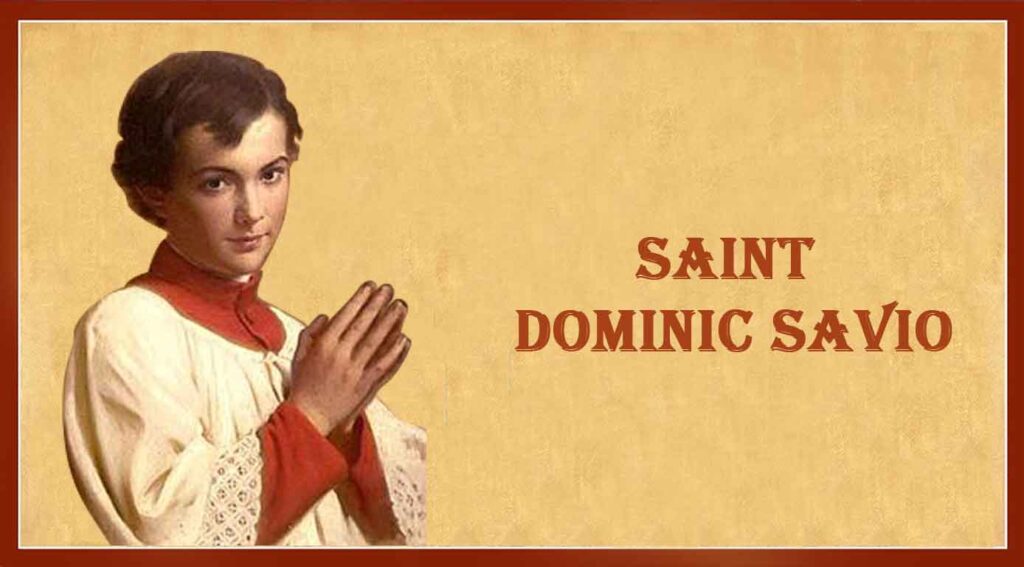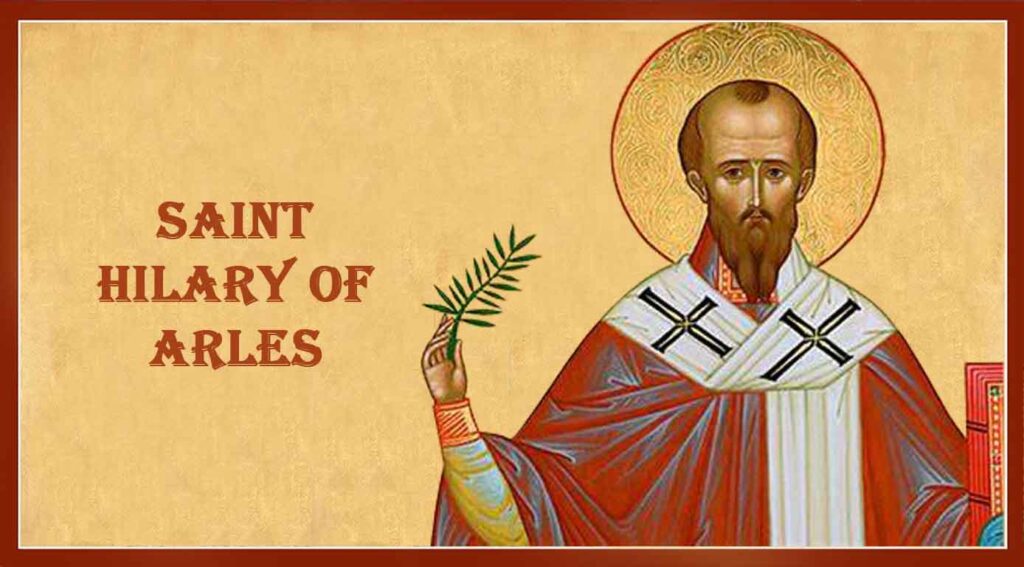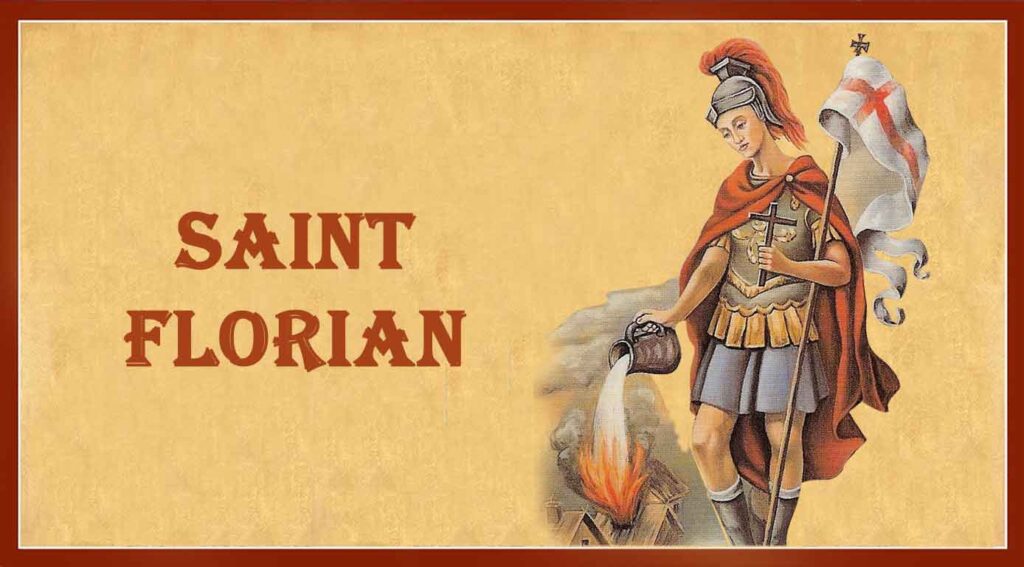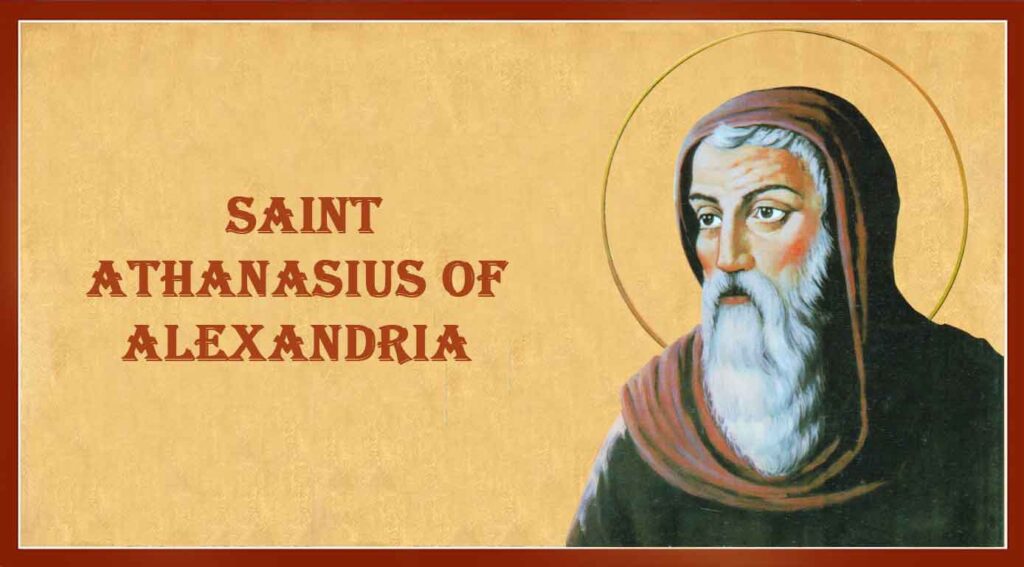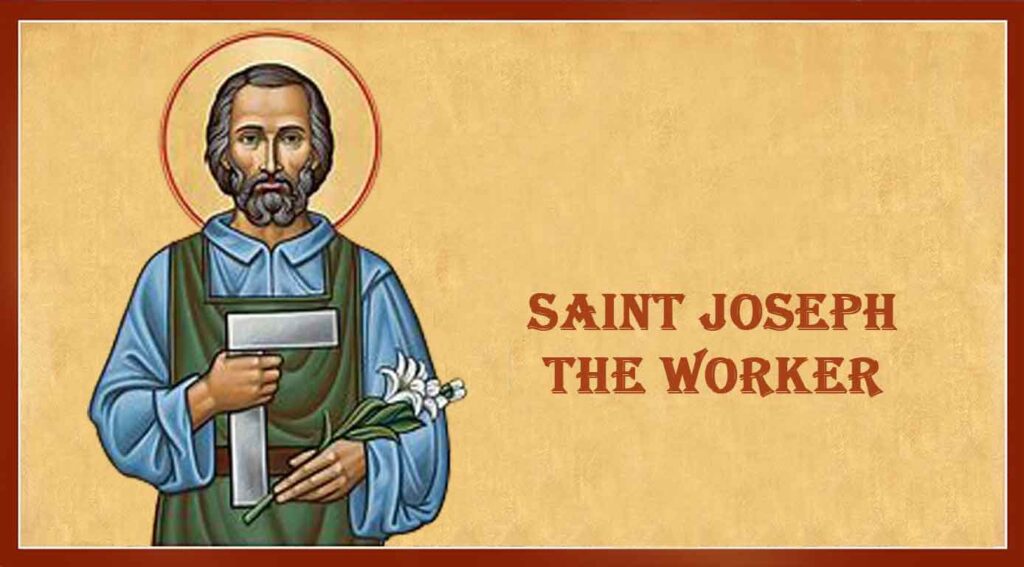Author name: sanjose
Saint Dominic Savio
Saint Dominic Savio was an Italian student of John Bosco. His parents had ten children in all. His father was a blacksmith and his mother, a seamstress. They were poor, hardworking and pious.
His parents took great care to give him a Christian upbringing. By the age of four, Dominic was able to pray by himself and was occasionally found in solitude, praying. A chaplain at Murialdo when Dominic was five years old noted in a statement to John Bosco that he came to notice Dominic due to his regular church attendance with his mother.
At the age of five, he learned to serve Mass, and would try to participate at Mass every day as well as go regularly to Confession. Having been permitted to make his First Communion at an early age, he had much reverence for the Eucharist
When Saint Dominic’s health started to steadily deteriorate, he still spent most of his time with his friends, talking with them, and encouraging those who were experiencing troubles. He died at the age of 14, possibly from pleurisy.
He was noted for his piety and devotion to the Catholic faith, and was canonized a saint by Pope Pius XII in 1954.
Saint Dominic Savio Read More »
1 Corinthians 16:14
Verse:
“Do everything in love.” - 1 Corinthians 16:14
Prayer For Strong Love For God
O Lord, when you said to your disciples, “One of you shall betray Me, they each asked, “Lord, is it I?” I pray, O God, for a love so strong that I will never betray Thee.
Amen.
1 Corinthians 16:14 Read More »
Saint Hilary of Arles
Born in France in the early fifth century, Saint Hilary came from an aristocratic family. In the course of his education he encountered his relative, Honoratus, who encouraged the young man to join him in the monastic life. Saint Hilary did so. He continued to follow in the footsteps of Honoratus as bishop. Saint Hilary was only 29 when he was chosen bishop of Arles.
The new, youthful bishop undertook the role with confidence. He did manual labor to earn money for the poor. He sold sacred vessels to ransom captives. He became a magnificent orator. He traveled everywhere on foot, always wearing simple clothing.
That was the bright side. Saint Hilary encountered difficulty in his relationships with other bishops over whom he had some jurisdiction. He unilaterally deposed one bishop. He selected another bishop to replace one who was very ill–but, to complicate matters, did not die! Pope Saint Leo the Great kept Saint Hilary a bishop but stripped him of some of his powers.
Saint Hilary died at 49. He was a man of talent and piety who in due time, had learned how to be a bishop.
Sources:
https://www.franciscanmedia.org/saint-of-the-day/saint-hilary-of-arles/
Saint Hilary of Arles Read More »
Leviticus 19:17-18
Verse:
“Do not hate a fellow Israelite in your heart. Rebuke your neighbor frankly so you will not share in their guilt. Do not seek revenge or bear a grudge against anyone among your people, but love your neighbor as yourself. I am the Lord.” - Leviticus 19:17-18
Prayer For God’s Peace Within
Father, You have called me to be still before You, to rest in Your love and to patiently bear the cross that is set before me, knowing that You are not only at my side every moment of the day, but dwelling deep within my heart.
Help me to depend on You in all things, knowing that nights of sadness will soon be turned into mornings of joy, when You are by my side. Keep me from fretful thoughts and foolish imaginings, knowing that You are my best and heavenly Friend, my Shepherd, my Provider, my Defender and the Rock of my salvation.
Amen.
Leviticus 19:17-18 Read More »
Saint Florian
Saint Florian was born around 250 AD in the ancient Roman city of Aelium Cetium, presently known as Pölten, Austria.
He joined the Roman Army and advanced in the ranks, rising to commander of the imperial army in the Roman province of Noricum. In addition to his military duties, he was also responsible for organizing and leading firefighting brigades. Saint Florian organized and trained an elite group of soldiers whose sole duty was to fight fires.
During the Diocletianic Persecution of Christians, reports reached Rome that Saint Florian was not enforcing the proscriptions against Christians in his territory. Aquilinus was sent to investigate these reports. When Aquilinus ordered Florian to offer sacrifice to the Roman gods in accordance with Roman religion, Florian refused. Florian was sentenced to be burned at the stake.
Saint Florian was a Christian holy man. He is a patron saint of firefighters, chimney sweeps, and brewers. He is invoked against fires, floods, lightning, and the pains of Purgatory.
Sources:
https://en.wikipedia.org/wiki/Saint_Florian
Psalm 90:17
Verse:
“May the favor of the Lord our God rest on us; establish the work of our hands for us— yes, establish the work of our hands.” - Psalm 90:17
Prayer for His leading
Dear Lord, I pray for wisdom and discernment to know if you are really calling me to start my own group. I'm afraid to step out of my comfort zone, but if this is your will for me, let your will be done. Please prepare my heart for it. In Jesus' most powerful name, Amen.
Sources:
https://prayer.knowing-jesus.com/Prayers-to-be-in-the-will-of-God
Saint Athanasius of Alexandria
Saint Athanasius I of Alexandria was also known as Athanasius the Great and Athanasius the Confessor. He was a Christian theologian, a Church Father, the chief defender of Trinitarianism against Arianism, and a noted Egyptian Christian leader of the fourth century.
In 325, at age 27, Saint Athanasius began his leading role against the Arians as a deacon and assistant to Bishop Alexander of Alexandria during the First Council of Nicaea. Roman Emperor Constantine the Great had convened the council to address the Arian position that the Son of God, Jesus of Nazareth, is of a distinct substance from the Father. Three years after that council, Athanasius succeeded his mentor as pope of Alexandria.
Athanasius’ episcopate began on 9 May 328 as the Alexandrian Council elected Athanasius to succeed after the death of Alexander. During his first years as bishop, Athanasius visited the churches of his territory, which at that time included all of Egypt and Libya. He established contacts with the hermits and monks of the desert, including Pachomius, which proved very valuable to him over the years. Patriarch Athanasius spent over 17 years in five exiles ordered by four different Roman Emperors, not counting approximately six more incidents in which Athanasius fled Alexandria to escape people seeking to take his life.
Athanasius’ “Letter Concerning the Decrees of the Council of Nicaea” (De Decretis), is an important historical as well as theological account of the proceedings of that council. His other important works include his Letters to Serapion, which defends the divinity of the Holy Spirit. In a letter to Epictetus of Corinth, Athanasius anticipates future controversies in his defence of the humanity of Christ. Athanasius also wrote several works of Biblical exegesis, primarily on Old Testament materials. The most important of these is his Epistle to Marcellinus on how to incorporate psalm-saying into one’s spiritual practice. Excerpts remain of his discussions concerning the Book of Genesis, the Song of Solomon, and Psalms.
Gregory of Nazianzus called Saint Athanasius as the “Pillar of the Church”. His writings were well regarded by subsequent Church fathers in the West and the East, who noted their devotion to the Word-become-man, pastoral concern and interest in monasticism. Athanasius is considered one of the four great Eastern Doctors of the Church in the Catholic Church.
Sources:
https://en.wikipedia.org/wiki/Athanasius_of_Alexandria
Saint Athanasius of Alexandria Read More »
Acts 2:3-4
Verse:
“They saw what seemed to be tongues of fire that separated and came to rest on each of them. All of them were filled with the Holy Spirit and began to speak in other tongues as the Spirit enabled them.” - Acts 2:3-4
Prayer To Be Led By The Holy Spirit
Heavenly Father, how I thank You for my salvation, which You have given to me as a free gift of grace by faith in the Lord Jesus. Thank You also, that Your Holy Spirit has made me alive in Him and placed me into the family of God and the body of Christ.
Amen.
Saint Joseph the Worker
To foster deep devotion to Saint Joseph among Catholics, and in response to the “May Day” celebrations for workers sponsored by Communists, Pope Pius XII instituted the feast of Saint Joseph the Worker in 1955. This feast extends the long relationship between Joseph and the cause of workers in both Catholic faith and devotion. Beginning in the Book of Genesis, the dignity of human work has long been celebrated as a participation in the creative work of God. By work, humankind both fulfills the command found in Genesis to care for the earth (Gn 2:15) and to be productive in their labors. Saint Joseph, the carpenter and foster father of Jesus, is but one example of the holiness of human labor.
Jesus, too, was a carpenter. He learned the trade from Saint Joseph and spent his early adult years working side-by-side in Joseph’s carpentry shop before leaving to pursue his ministry as preacher and healer. In his encyclical Laborem Exercens, Pope John Paul II stated: “the Church considers it her task always to call attention to the dignity and rights of those who work, to condemn situations in which that dignity and those rights are violated, and to help to guide [social] changes so as to ensure authentic progress by man and society.”
Saint Joseph is held up as a model of such work. Pius XII emphasized this when he said, “The spirit flows to you and to all men from the heart of the God-man, Savior of the world, but certainly, no worker was ever more completely and profoundly penetrated by it than the foster father of Jesus, who lived with Him in closest intimacy and community of family life and work.”
Sources:
https://www.franciscanmedia.org/saint-of-the-day/saint-joseph-the-worker/
Saint Joseph the Worker Read More »



